7 Valuable Pieces of Advice from Experts on Loss
In this article, I've interviewed seven experts on loss from a variety of different backgrounds. Here, they share their words of wisdom, advice, insights and recommendations on how to deal with an emotional breakdown after a devastating loss. For those of you facing loss of any kind, my hope is that you find at least one of these strategies helpful and supportive in working through your own process and journey.1. Mike Bundrant, Master NLP Trainer, Life Coach, Retired Psychotherapist, and Founder of the iNLP Center
If you’re having a breakdown after a loss, then that’s probably a good thing. Emotionally breaking down means that at some level you have accepted the loss. The breakdown means you aren’t in denial! That’s a great start. Hanging out in denial about a loss or telling yourself the loss isn’t a big deal (when it’s not true) will only prolong the recovery time and the agony.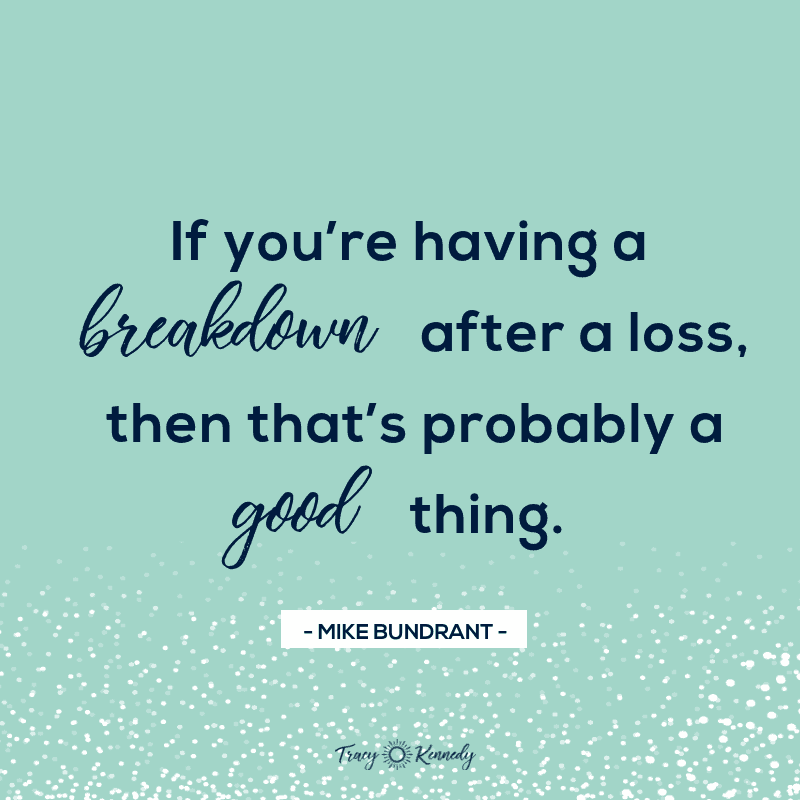 Remind yourself that the emotional breakdown is a GOOD thing that needs to happen -- a sign that the healing process has begun. There is NO HARD AND FAST rule about how intense the grief should be. No rule about how long it’s supposed to last. The best rule about this stuff is: Stay out of the way! Let the process happen. If you’re sad, be sad. If you’re terrified, be that. Let your feelings flow and don’t worry about when the breakdown will end. It will pass, guaranteed, and you will heal. Your emotions are intelligent. Let them be what they are and ride them out, interfering or interrupting as little as possible. Acceptance is the key here. Finally, reach out to people whom you trust. Your emotions are your own, but sharing them with people lightens the burden. After a loss, it’s a good idea to remind yourself who is still present in your life. Connect with them.
Remind yourself that the emotional breakdown is a GOOD thing that needs to happen -- a sign that the healing process has begun. There is NO HARD AND FAST rule about how intense the grief should be. No rule about how long it’s supposed to last. The best rule about this stuff is: Stay out of the way! Let the process happen. If you’re sad, be sad. If you’re terrified, be that. Let your feelings flow and don’t worry about when the breakdown will end. It will pass, guaranteed, and you will heal. Your emotions are intelligent. Let them be what they are and ride them out, interfering or interrupting as little as possible. Acceptance is the key here. Finally, reach out to people whom you trust. Your emotions are your own, but sharing them with people lightens the burden. After a loss, it’s a good idea to remind yourself who is still present in your life. Connect with them.
2. Lucia Giovannini, Doctor of Psychology and Counselling
When faced with a loss, the key element to recovery is resilience. Recovery happens in 4 phases: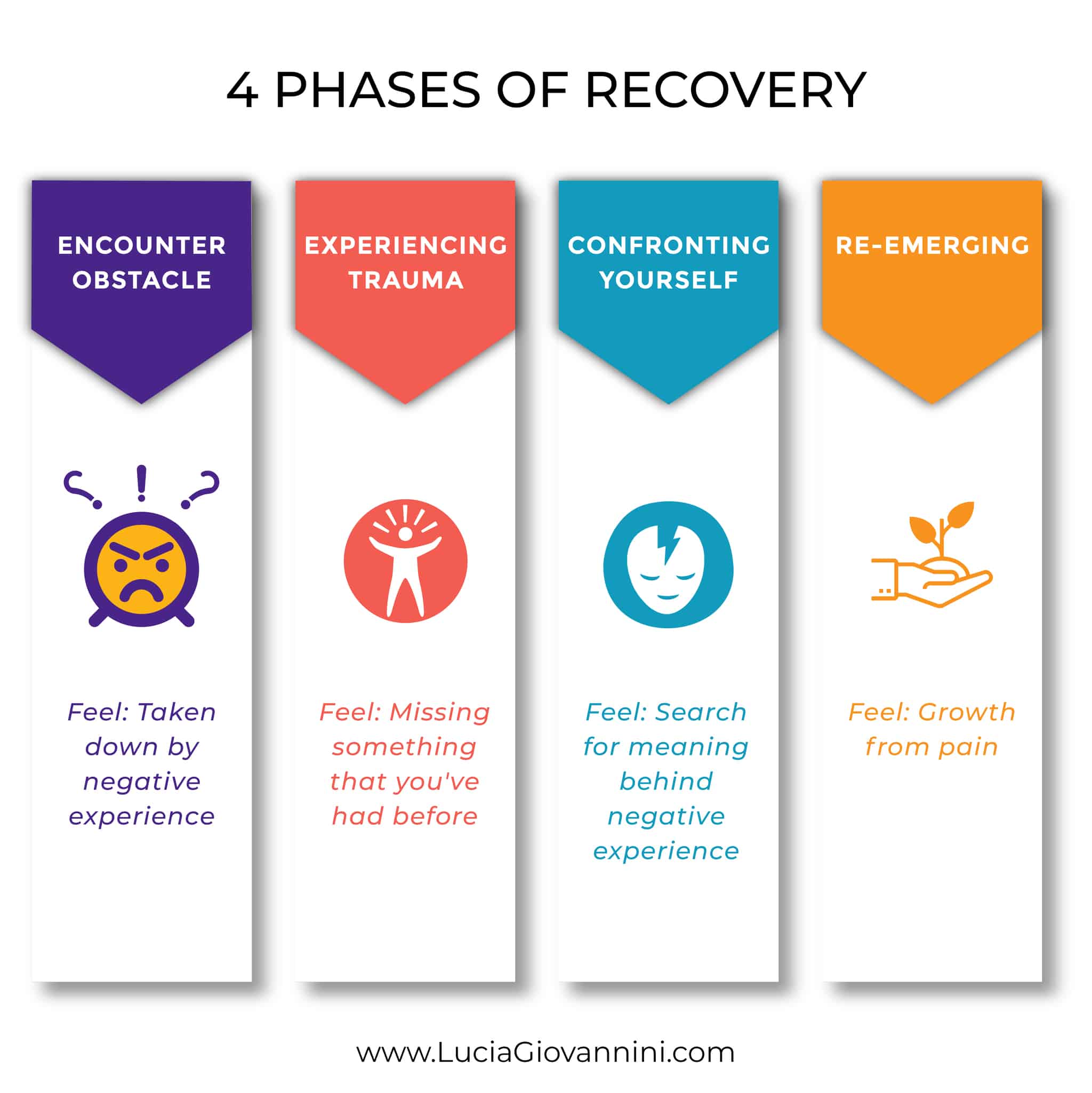 1. The first phase is the encounter with the obstacle; you feel you are taken down by a painful negative experience. Acceptance is the only way to deal with it. Often loss is something beyond our control; we can’t do anything about it, the only way to react is to accept. Because if you cannot accept it, you are going to fight the experience, which might be even more painful. Accept this experience as the part of life. 2. The second step is actually experiencing the loss, the trauma, the pain. After experiencing the loss, we feel like we are missing something that we had before. It’s human and it’s normal to feel the pain. What’s important is not to suppress the feelings. If you expect yourself not to feel pain, to be well immediately and you don’t allow yourself some time to actually experience pain, you bring yourself into even more pain. Here you’ll need patience. Sit with emotions, knowing it will not last forever. 3. The third step is the process of confrontation. To be able to re-emerge, you need to confront yourself, gather feedback in order to understand what can be done. Normally, when we lose a person, job or a house we ask: “Why did this happen to me?” This is a very ineffective question that brings us into a negative spiral. The good question to ask yourself instead is: “What is the learning here for me?” This question can make all the difference. The idea is to find the meaning, which will help you to find the end of this pain. 4. The fourth stage is when you’ve gathered the teaching, gathered the lessons, and have grown from this pain. For example: During a tsunami I was in Thailand, working with the Thai government as a volunteer to help people who lost their families, houses, businesses to cope with the loss. Of course, people were in pain, they were in despair. I still remember one man who lost his child and business to the tsunami. Everything was gone for him; there was nothing that he could do. The only thing he could do was to give some meaning to everything that happened. And he did. He founded a non-profit to help orphan children in Thailand. Nothing would bring his own child back, but he found happiness and meaning once again after losing everything in that disaster.
1. The first phase is the encounter with the obstacle; you feel you are taken down by a painful negative experience. Acceptance is the only way to deal with it. Often loss is something beyond our control; we can’t do anything about it, the only way to react is to accept. Because if you cannot accept it, you are going to fight the experience, which might be even more painful. Accept this experience as the part of life. 2. The second step is actually experiencing the loss, the trauma, the pain. After experiencing the loss, we feel like we are missing something that we had before. It’s human and it’s normal to feel the pain. What’s important is not to suppress the feelings. If you expect yourself not to feel pain, to be well immediately and you don’t allow yourself some time to actually experience pain, you bring yourself into even more pain. Here you’ll need patience. Sit with emotions, knowing it will not last forever. 3. The third step is the process of confrontation. To be able to re-emerge, you need to confront yourself, gather feedback in order to understand what can be done. Normally, when we lose a person, job or a house we ask: “Why did this happen to me?” This is a very ineffective question that brings us into a negative spiral. The good question to ask yourself instead is: “What is the learning here for me?” This question can make all the difference. The idea is to find the meaning, which will help you to find the end of this pain. 4. The fourth stage is when you’ve gathered the teaching, gathered the lessons, and have grown from this pain. For example: During a tsunami I was in Thailand, working with the Thai government as a volunteer to help people who lost their families, houses, businesses to cope with the loss. Of course, people were in pain, they were in despair. I still remember one man who lost his child and business to the tsunami. Everything was gone for him; there was nothing that he could do. The only thing he could do was to give some meaning to everything that happened. And he did. He founded a non-profit to help orphan children in Thailand. Nothing would bring his own child back, but he found happiness and meaning once again after losing everything in that disaster.
Recommended Reading
A Whole New Life: Discover the Power of Positive Transformation -- Covers being faced with traumatic change, defining your power zone, about getting back on your feet.3. Dr. Zach Bush, Triple Board Certified MD
Whenever you’ve experienced a significant loss or trauma, getting your physical body quickly back into balance is critical. Emotional trauma can live in our bodies, and if we don’t deal with it, it sets us up for disease and disorder in the long run. The danger when trauma occurs is that your body holds that trauma memory and defines a space in your body by that momentary emotional or physical event. To prevent this, you need to quickly re-balance the parasympathetic nervous system to maintain neurological and functional wellness. If not cleared, your body ages as an encyclopedia of all your mild and major traumas of life; rusting (oxidation) occurs in your connective tissue, muscle, skeletal, immune and neural systems. A great way to achieve this reset is by ‘tapping the cortices’. I use the concept of Body Talk with my patients and anyone experiencing loss. It’s a simple strategy which can quickly re-center, ground you and get you back into balance. It turns on your parasympathetic nervous system (rest and digest) and relieves your sympathetic nervous system response (fight or flight). It lets your body know, “I am here, now. The injury is in the past, I’m safe in my body again.” This type reminds your physical body that whatever reverberations of the emotional trauma you are feeling, it’s just that, an emotional echo. It’s not a part of your physical reality now. This technique literally releases the trauma by ‘tapping it out’. You can use it any time and it’s very simple. Other ways to manage feelings associated with loss include breathwork, grounding (take your shoes off, in grass or sand), meditation and sensory strategies. These might include listening to music or a bird chirping. Smell essential oils. Feel your feet on the earth, seat on your chair or fabric against your skin. All of these methods aim to reground you in the present moment so to remind your body that the past is the past, and today is an opportunity for a new body and a new mind. While others may disagree, you need to be careful not to defer to your emotions, or define your state of being by your emotions. They can be a profoundly inaccurate interpretation of what’s going on. Emotions can present a false reality because our physical reality isn’t made of emotions. We are programmed by social training to create emotions in response to events. We are then taught to create our memories in the context of these emotions, and further trained to tell the emotional story of our life. This can severely limit our physical reality and potential. If you are feeling an overwhelming sense of emotion, it helps to acknowledge you are in an emotional experience. Neurochemically, an emotion lasts seven seconds. If you are going to stay sad, rejected, or otherwise emotionally caught up, we have to keep manufacturing that emotion by telling ourselves the story over and over again. If we take two minutes to break that emotional story telling through tapping, meditation, breathing, or any other method, we can be free.Recommended Resources
Body Talk, Tapping the Cortices: https://www.youtube.com/watch?v=R7cEnyaxrGk4. Veronica Winston, Marriage and Family Therapist
So often in my practice, I've consulted with clients who are high-functioning Type A Personalities. They tell me they were pushed to seek me out by friends, coworkers and family who are worrying because they aren't coping well. My client assures me they are "really ok," but that they went through a recent trauma or significant loss. Yes, maybe they are drinking a bit more, isolating and maybe missing work, but "it's ok." Much of my work is to explore whether they are actually in denial. Denial that they are human, that we all have weaknesses, and that they are in reality rocked back on their heels. Maybe to the point that they have fantasized about not wanting to wake up again to yet another day of denial. What is denial? It might look like telling everyone you are okay and don't need help but acting and behaving in ways that suggest otherwise, like having panic attacks, experiencing symptoms of anxiety or depression, struggling to do your work or take care of yourself or family, and feeling out of control. When facing loss, it’s important to recognize that we all must parent, love and protect ourselves as well as we do for others in our lives. I help these wonderful people to understand that we all need to reach out sometimes, to open up our emotions to others, and call in some well-deserved favors. Denial kills and it’s important to move through this stage of grief.Recommended Resources
I strongly recommend seeing a therapist. Someone in person who can assess your situation and guide you through the grief process. Not sure where to start? Get a referral from someone you trust: ask your friends or your doctor. Psychology Today has an extensive online directory.5. Nita Tucker, Author and Consultant
Expectations of others as well as your own can make the adjustment to loss even more difficult. You may think you’ve grieved, and then six months, two years or even 30 years later you can be overwhelmed with loss and depression. Try thinking of grief as a wave (an unsuspecting and unpredictable wave). You may have dealt with the loss and swimming comfortably through life and a wave will hit you and maybe even knock you off your feet. The thoughts can be: a) I thought I was over this! b) I should be over this by now, or c) It hasn’t gotten better and it never will! It's important not to judge yourself, even if it’s a very severe occurrence. Probably the best advice is to treat it like a wave, even name it as a wave and honor the sadness that you feel. “Wow that was a big wave of grief, I didn’t expect it.” Also, to acknowledge that loss and sadness is part of who you are; it will come when it comes. Since you don’t have a choice about it being there, you can choose to resist it (which I promise won’t work) or to accept and honor it. Years ago, Hugh Downs did a special on 20/20 on aging and longevity. One of the conclusions he drew after dozens of interviews was that one of the keys to longevity is the person’s ability to deal with and live with loss. At the age of 95, you have lost parents, spouses, friends, relatives, even children. The ability to continue living with joy and vitality in the face of such profound loss is a skill and capacity that is essential.6. Linda Wolff: Occupational Therapist and Values Consultant (she also happens to be my Mom)
First, and most importantly, honor the grieving process. Our culture doesn’t always honor this process because people want things to move quickly on to the next thing. Grief reflects how significant the person/event/thing was in your life.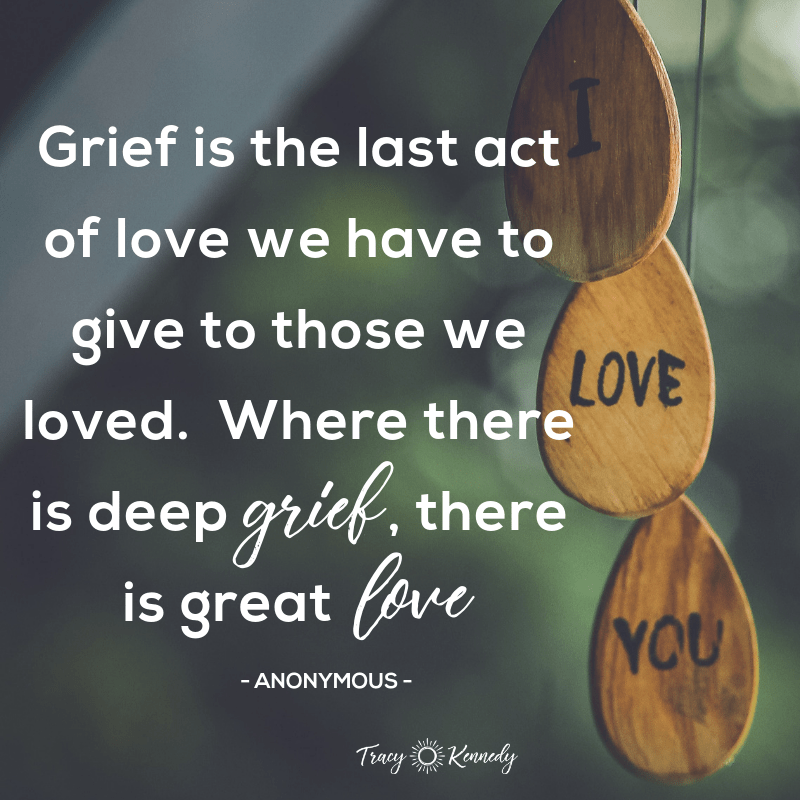 Moving through any type of loss is a “process". There has been much written on the stages of grief that are helpful guideposts during the process. The Kubler Ross Stages((PSYCOM: The Five Stages of Grief)) are one of the most well-known of these models. The stages normalize the process and is a great support.
Moving through any type of loss is a “process". There has been much written on the stages of grief that are helpful guideposts during the process. The Kubler Ross Stages((PSYCOM: The Five Stages of Grief)) are one of the most well-known of these models. The stages normalize the process and is a great support. 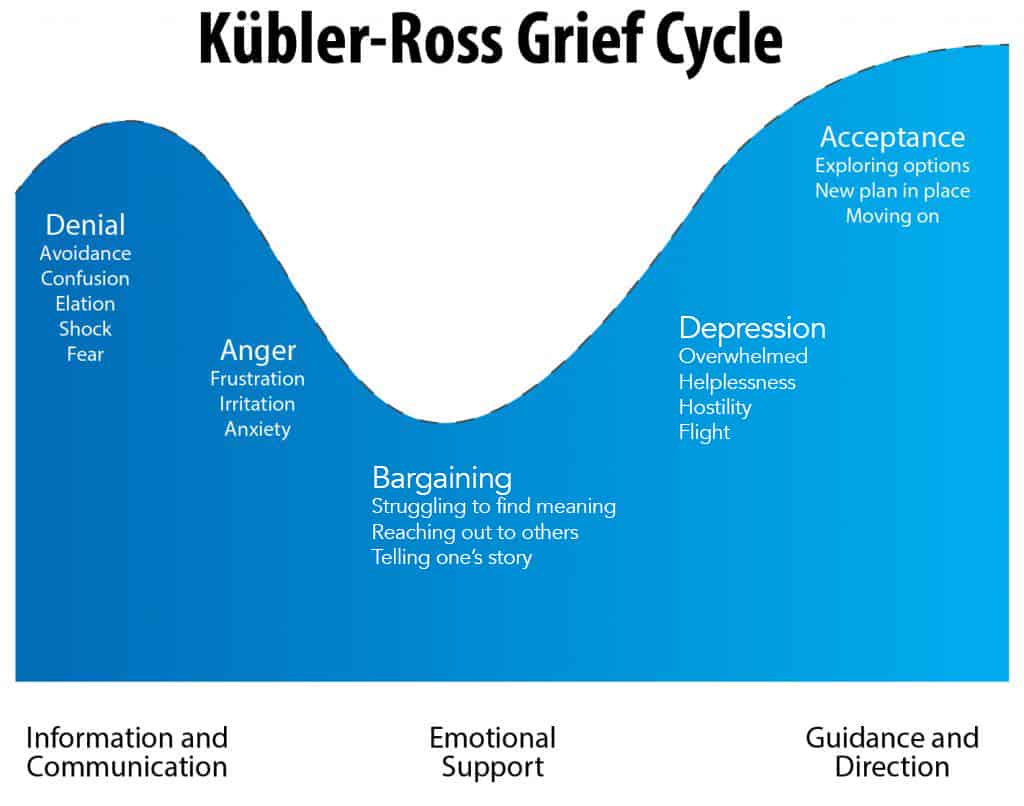 I know the pain of feeling broken-hearted and broken down with grief. I’ve had times when I’ve felt like the pain will last forever and not sure my heart will survive intact. Here are some strategies I share with clients and use personally:
I know the pain of feeling broken-hearted and broken down with grief. I’ve had times when I’ve felt like the pain will last forever and not sure my heart will survive intact. Here are some strategies I share with clients and use personally:
- Exercise -- You might not feel like it, but it’s critical. For me, it’s a non-negotiable.
- Journal -- As much or as little as you can. Sometimes it might just be a word, sometimes you’ll find yourself writing pages.
- Reach out to close friends -- Even when your very instinct is to isolate. A trusted friend is pure gold when experiencing loss.
- Spend time in nature -- Walking, running, gardening, meditating, reflecting or just sitting outside.
- Feel your feelings -- Life is full of a multitude of emotions and we must not be afraid to feel them.
Recommended Books
- The Wild Edge of Sorrow by Francis Weller
- When Things Fall Apart by Pema Chodren
- Broken Open: How Difficult Times Can Help Us Grow by Elizabeth Lesser
7. Susan Hannifin-MacNab Social Worker, Educator, Founder A2Z Healing Toolbox®
When I was 41, my husband went out for a Sunday drive and never returned for dinner. Then he didn’t show up for breakfast. Then the search began. Weeks went by, his vehicle was discovered, and his body recovered in the wreckage. I went from living what I felt was a healthy, charmed and balanced life, to suddenly becoming a traumatized young widow and solo parent to our grieving 5-year-old son. How does one cope with that kind of life-altering experience? Eventually, I began to chase after every tool, resource, and person that might help us. In doing so, I uncovered an alphabet’s worth of mind-body-spirit healing tools and community resources that I now share with others. I support bereaved and broken individuals and families with love, support, action and practical tools that everyone can use to deal with the emotional upheaval that comes with any type of loss. My advice to anyone navigating the complexities of profound loss? Choose a few healing tools that come naturally to you, then slowly integrate others over time. The 26 A2Z Healing tools may be a place to start.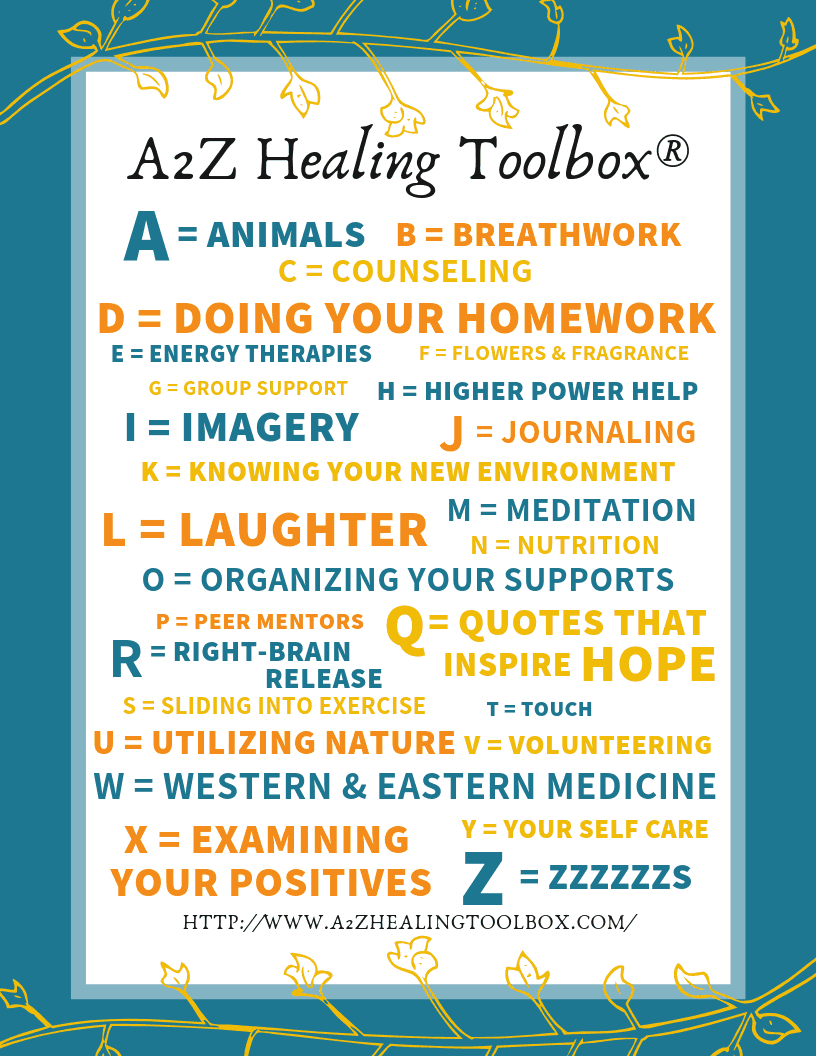 As painful as it is, you really must rally your resilience in order to heal. Some suggestions: Be your own advocate. Ask for help. Accept the help. Take action. Be intentional. Surround yourself with people who “get it”- therapists, peer mentors and group support. Lean into experiences that may help you even if they are outside of your current comfort zone. Learn from others. Find someone who you know to be resilient and let them model. Are they positive? Do they dive into the pain in order to recreate anew? Do they reach out for help? Do they help others even though they are still hurting themselves?
As painful as it is, you really must rally your resilience in order to heal. Some suggestions: Be your own advocate. Ask for help. Accept the help. Take action. Be intentional. Surround yourself with people who “get it”- therapists, peer mentors and group support. Lean into experiences that may help you even if they are outside of your current comfort zone. Learn from others. Find someone who you know to be resilient and let them model. Are they positive? Do they dive into the pain in order to recreate anew? Do they reach out for help? Do they help others even though they are still hurting themselves?
Recommended Websites
- A2Z Healing Toolbox®: offering bereavement resources, workshops, presentations and the award-winning book A to Z Healing Toolbox: A Practical Guide for Navigating Grief and Trauma with Intention.
- Soaring Spirits International
- Camp Widow
Final Thoughts
I know how hard loss can be. My hope is that at least one of these strategies or insights helps you navigate whatever loss you may be experiencing right now and bring some light, hope and something to grab onto amongst the confusion and pain. Was there something specific that resonated with you? Try that. Something that you connected with? Check it out. Something you'd like to explore further? Great, do it. And, if you know someone who’s facing a breakdown or loss and you don’t know how to help, please pass on these important strategies and resources. As you’ve read above, community, friends, and knowing you have someone who’s there for you is critical in these times of tragedy and loss. In addition to these great experts, here are a few other resources I recommend:Recommended Book
Healing After Loss: Daily Meditations For Working Through Grief by Martha W. Hickman. I’ve heard and read about this book often from many individuals. They appreciate the practical, daily support it provides.Recommended Websites
Option B Based on the bestselling book by Sheryl Sandberg (COO Facebook who lost her husband suddenly) and Adam Grant (Psychologist and Author), this website is designed to help people ‘build resilience and find meaning in the face of adversity’. The site provides resources, shares stories and the chance to join groups for support. Grief.com Developed by David Kessler, one of the world’s foremost experts on healing and loss and author of five bestselling books. Kessler is a grief expert who worked closely with the legendary Elisabeth Kübler-Ross (from the stages of grief model above). This site outlines the stages of grief, provides free videos, resources and connections to counselors and grief groups. When all else fails, remember this: There is no right or wrong way to grieve after loss. There is no one or best solution. This is your journey. Where you are right now is exactly where you’re supposed to be. However you feel is ok. Wherever you are is perfect for you. Lastly, for me, one of the most important things that has helped me through my own losses is to know this with certainty:Whether or not you can see it right now, this loss will be another step forward, another experience woven into the fabric of your beautiful life.
from Lifehack - Feed https://ift.tt/2C31TG4
via IFTTT

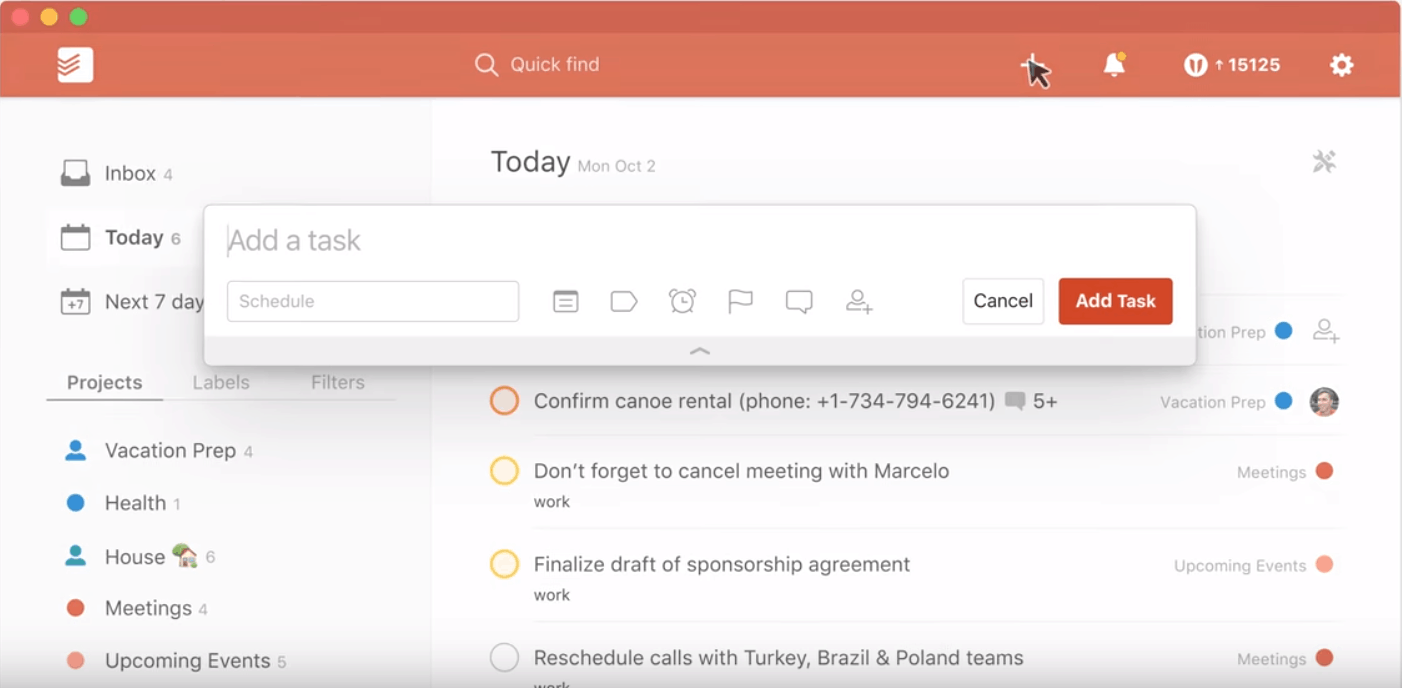


No comments:
Post a Comment